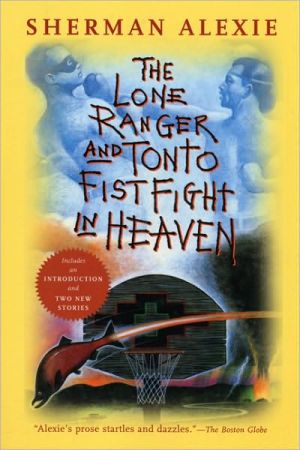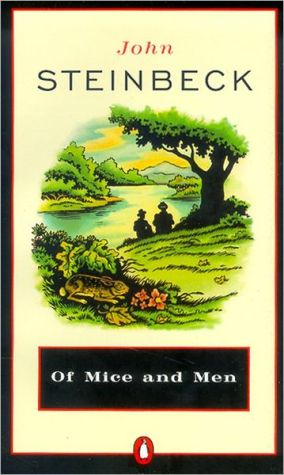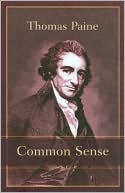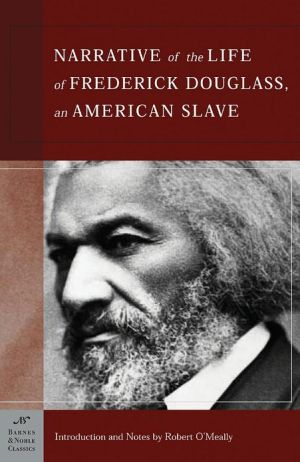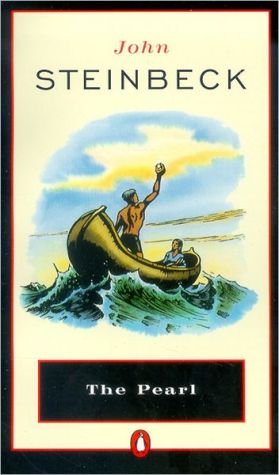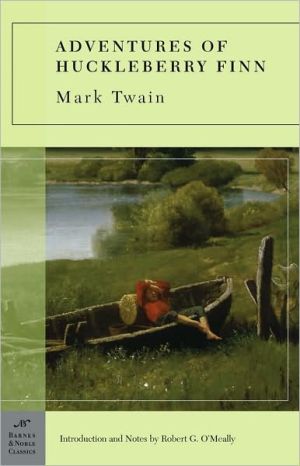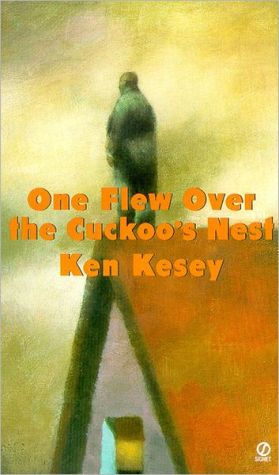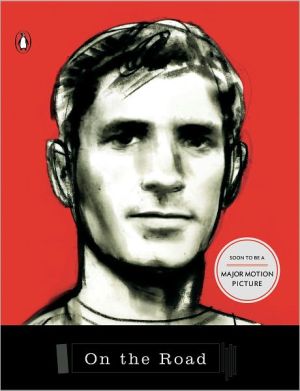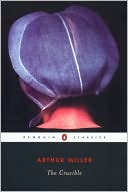The Lone Ranger and Tonto Fistfight in Heaven
Sherman Alexie’s critically celebrated first collection, The Lone Ranger and Tonto Fistfight in Heaven established its author as one of America’s most important and provocative voices. Vividly weaving memory, fantasy, and stark reality to paint a portrait of life in and around the Spokane Indian reservation, this book introduces some of Alexie’s most beloved characters who inhabit his distinctive landscape. There is Thomas Builds-the-Fire, the storyteller who no one seems to listen to, and...
Search in google:
In this poignant collection of short stories, Spokane/Coeur d'Alene Indian Sherman Alexie paints a picture of reservation life that is at once lyrical and darkly ironic. Alexie's characters live in an ethereal world where visions of tribal dances mix with government subsidies and graveyard shifts at the 7-11. Amidst poverty and police cars, the Indians of the Spokane reservation find relief in alcohol, laughter and stories of their shared heritage. With a spare yet powerful voice, Alexie reveals the tensions Indians face both on and off the reservation, as well the daily conflicts between the realities of their present and the traditions of the past.World Literature Today - Alan R. Velie{The author's} latest work, The Lone Ranger and Tonto Fist-fight in Heaven, somewhere between a novel and a collection of short stories, a la Louise Erdrich's {book} Love Medicine {BRD 1985}, establishes him not only as one of the best of the Indian writers but as one of the most promising of the new generation of American writers.
THE LONE RANGER AND\ \ TONTO FISTFIGHT IN\ \ HEAVEN\ \ Too hot to sleep so I walked down to the Third Avenue 7-11 for a Creamsicle and the company of a graveyard-shift cashier. I know that game. I worked graveyard for a Seattle 7-11 and got robbed once too often. The last time the bastard locked me in the cooler. He even took my money and basketball shoes.\ \ The graveyard-shift worker in the Third Avenue 7-11 looked like they all do. Acne scars and a bad haircut, work pants that showed off his white socks, and those cheap black shoes that have no support. My arches still ache from my year at the Seattle 7-11.\ \ "Hello," he asked when I walked into his store. "How you doing?"\ \ I gave him a half-wave as I headed back to the freezer. He looked me over so he could describe me to the police later. I knew the look. One of my old girlfriends said I started to look at her that way, too. She left me not long after that. No, I left her and don't blame her for anything. That's how it happened. When one person starts to look at another like a criminal, then the love is over. It's logical.\ \ \ \ "I don't trust you," she said to me. "You get too angry."\ \ She was white and I lived with her in Seattle. Some nights we fought so bad that I would just get in my car and drive all night, only stop to fill up on gas. In fact, I worked the graveyard shift to spend as much time away from her as possible. But I learned all about Seattle that way, driving its back ways and dirty alleys.\ \ Sometimes, though, I would forget where I was and get lost. I'd drive for hours, searching for something familiar. Seems like I'd spent my whole life that way, looking for anything I recognized. Once, I ended up in a nice residential neighborhood and somebody must have been worried because the police showed up and pulled me over.\ \ "What are you doing out here?" the police officer asked me as he looked over my license and registration.\ \ "I'm lost."\ \ "Well, where are you supposed to be?" he asked me, and I knew there were plenty of places I wanted to be, but none where I was supposed to be.\ \ "I got in a fight with my girlfriend," I said. "I was just driving around, blowing off steam, you know?"\ \ "Well, you should be more careful where you drive," the officer said. "You're making people nervous. You don't fit the profile of the neighborhood."\ \ I wanted to tell him that I didn't really fit the profile of the country but I knew it would just get me into trouble.\ \ \ \ "Can I help you?" the 7-11 clerk asked me loudly, searching for some response that would reassure him that I wasn't an armed robber. He knew this dark skin and long, black hair of mine was dangerous. I had potential.\ \ "Just getting a Creamsicle," I said after a long interval. It was a sick twist to pull on the guy, but it was late and I was bored. I grabbed my Creamsicle and walked back to the counter slowly, scanned the aisles for effect. I wanted to whistle low and menacingly but I never learned to whistle.\ \ "Pretty hot out tonight?" he asked, that old rhetorical weather bullshit question designed to put us both at ease.\ \ "Hot enough to make you go crazy," I said and smiled. He swallowed hard like a white man does in those situations. I looked him over. Same old green, red, and white 7-11 jacket and thick glasses. But he wasn't ugly, just misplaced and marked by loneliness. If he wasn't working there that night, he'd be at home alone, flipping through channels and wishing he could afford HBO or Showtime.\ \ "Will this be all?" he asked me, in that company effort to make me do some impulse shopping. Like adding a clause onto a treaty. We'll take Washington and Oregon and you get six pine trees and a brand-new Chrysler Cordoba. I knew how to make and break promises.\ \ "No," I said and paused. "Give me a Cherry Slushie, too."\ \ "What size?" he asked, relieved.\ \ "Large," I said, and he turned his back to me to make the drink. He realized his mistake but it was too late. He stiffened, ready for the gunshot or the blow behind the ear. When it didn't come, he turned back to me.\ \ "I'm sorry," he said. "What size did you say?"\ \ "Small," I said and changed the story.\ \ "But I thought you said large."\ \ "If you knew I wanted a large, then why did you ask me again?" I asked him and laughed. He looked at me, couldn't decide if I was giving him serious shit or just goofing. There was something about him I liked, even if it was three in the morning and he was white.\ \ "Hey," I said. "Forget the Slushie. What I want to know is if you know all the words to the theme from 'The Brady Bunch'?"\ \ He looked at me, confused at first, then laughed.\ \ "Shit," he said. "I was hoping you weren't crazy. You were scaring me."\ \ "Well, I'm going to get crazy if you don't know the words."\ \ He laughed loudly then, told me to take the Creamsicle for free. He was the graveyard-shift manager and those little demonstrations of power tickled him. All seventy-five cents of it. I knew how much everything cost.\ \ "Thanks," I said to him and walked out the door. I took my time walking home, let the heat of the night melt the Creamsicle all over my hand. At three in the morning I could act just as young as I wanted to act. There was no one around to ask me to grow up.\ \ \ \ In Seattle, I broke lamps. She and I would argue and I'd break a lamp, just pick it up and throw it down. At first she'd buy replacement lamps, expensive and beautiful. But after a while she'd buy lamps from Goodwill or garage sales. Then she just gave up the idea entirely and we'd argue in the dark.\ \ "You're just like your brother," she'd yell. "Drunk all the time and stupid."\ \ "My brother don't drink that much."\ \ She and I never tried to hurt each other physically. I did love her, after all, and she loved me. But those arguments were just as damaging as a fist. Words can be like that, you know? Whenever I get into arguments now, I remember her and I also remember Muhammad Ali. He knew the power of his fists but, more importantly, he knew the power of his words, too. Even though he only had an IQ of 80 or so, Ali was a genius. And she was a genius, too. She knew exactly what to say to cause me the most pain.\ \ But don't get me wrong. I walked through that relationship with an executioner's hood. Or more appropriately, with war paint and sharp arrows. She was a kindergarten teacher and I continually insulted her for that.\ \ "Hey, schoolmarm," I asked. "Did your kids teach you anything new today?"\ \ And I always had crazy dreams. I always have had them, but it seemed they became nightmares more often in Seattle.\ \ In one dream, she was a missionary's wife and I was a minor war chief. We fell in love and tried to keep it secret. But the missionary caught us fucking in the barn and shot me. As I lay dying, my tribe learned of the shooting and attacked the whites all across the reservation. I died and my soul drifted above the reservation.\ \ Disembodied, I could see everything that was happening. Whites killing Indians and Indians killing whites. At first it was small, just my tribe and the few whites who lived there. But my dream grew, intensified. Other tribes arrived on horseback to continue the slaughter of whites, and the United States Cavalry rode into battle.\ \ The most vivid image of that dream stays with me. Three mounted soldiers played polo with a dead Indian woman's head. When I first dreamed it, I thought it was just a product of my anger and imagination. But since then, I've read similar accounts of that kind of evil in the old West. Even more terrifying, though, is the fact that those kinds of brutal things are happening today in places like El Salvador.\ \ All I know for sure, though, is that I woke from that dream in terror, packed up all my possessions, and left Seattle in the middle of the night.\ \ "I love you," she said as I left her. "And don't ever come back."\ \ I drove through the night, over the Cascades, down into the plains of central Washington, and back home to the Spokane Indian Reservation.\ \ * * *\ \ When I finished the Creamsicle that the 7-11 clerk gave me, I held the wooden stick up into the air and shouted out very loudly. A couple lights flashed on in windows and a police car cruised by me a few minutes later. I waved to the men in blue and they waved back accidentally. When I got home it was still too hot to sleep so I picked up a week-old newspaper from the floor and read.\ \ There was another civil war, another terrorist bomb exploded, and one more plane crashed and all aboard were presumed dead. The crime rate was rising in every city with populations larger than 100,000, and a farmer in Iowa shot his banker after foreclosure on his 1,000 acres.\ \ A kid from Spokane won the local spelling bee by spelling the word rhinoceros.\ \ \ \ When I got back to the reservation, my family wasn't surprised to see me. They'd been expecting me back since the day I left for Seattle. There's an old Indian poet who said that Indians can reside in the city, but they can never live there. That's as close to truth as any of us can get.\ \ Mostly I watched television. For weeks I flipped through channels, searched for answers in the game shows and soap operas. My mother would circle the want ads in red and hand the paper to me.\ \ "What are you going to do with the rest of your life?" she asked.\ \ "Don't know," I said, and normally, for almost any other Indian in the country, that would have been a perfectly fine answer. But I was special, a former college student, a smart kid. I was one of those Indians who was supposed to make it, to rise above the rest of the reservation like a fucking eagle or something. I was the new kind of warrior.\ \ For a few months I didn't even look at the want ads my mother circled, just left the newspaper where she had set it down. After a while, though, I got tired of television and started to play basketball again. I'd been a good player in high school, nearly great, and almost played at the college I attended for a couple years. But I'd been too out of shape from drinking and sadness to ever be good again. Still, I liked the way the ball felt in my hands and the way my feet felt inside my shoes.\ \ At first I just shot baskets by myself. It was selfish, and I also wanted to learn the game again before I played against anybody else. Since I had been good before and embarrassed fellow tribal members, I knew they would want to take revenge on me. Forget about the cowboys versus Indians business. The most intense competition on any reservation is Indians versus Indians.\ \ But on the night I was ready to play for real, there was this white guy at the gym, playing with all the Indians.\ \ "Who is that?" I asked Jimmy Seyler.\ \ "He's the new BIA chief's kid."\ \ "Can he play?"\ \ "Oh, yeah."\ \ And he could play. He played Indian ball, fast and loose, better than all the Indians there.\ \ "How long's he been playing here?" I asked.\ \ "Long enough."\ \ I stretched my muscles, and everybody watched me. All these Indians watched one of their old and dusty heroes. Even though I had played most of my ball at the white high school I went to, I was still all Indian, you know? I was Indian when it counted, and this BIA kid needed to be beaten by an Indian, any Indian.\ \ I jumped into the game and played well for a little while. It felt good. I hit a few shots, grabbed a rebound or two, played enough defense to keep the other team honest. Then that white kid took over the game. He was too good. Later, he'd play college ball back East and would nearly make the Knicks team a couple years on. But we didn't know any of that would happen. We just knew he was better that day and every other day.\ \ The next morning I woke up tired and hungry, so I grabbed the want ads, found a job I wanted, and drove to Spokane to get it. I've been working at the high school exchange program ever since, typing and answering phones. Sometimes I wonder if the people on the other end of the line know that I'm Indian and if their voices would change if they did know.\ \ One day I picked up the phone and it was her, calling from Seattle.\ \ "I got your number from your mom," she said. "I'm glad you're working."\ \ "Yeah, nothing like a regular paycheck."\ \ "Are you drinking?"\ \ "No, I've been on the wagon for almost a year."\ \ "Good."\ \ The connection was good. I could hear her breathing in the spaces between our words. How do you talk to the real person whose ghost has haunted you? How do you tell the difference between the two?\ \ "Listen," I said. "I'm sorry for everything."\ \ "Me, too."\ \ "What's going to happen to us?" I asked her and wished I had the answer for myself.\ \ "I don't know," she said. "I want to change the world."\ \ \ \ These days, living alone in Spokane, I wish I lived closer to the river, to the falls where ghosts of salmon jump. I wish I could sleep. I put down my paper or book and turn off all the lights, lie quietly in the dark. It may take hours, even years, for me to sleep again. There's nothing surprising or disappointing in that.\ \ I know how all my dreams end anyway.\
Every little hurricane1A drug called tradition12Because my father always said he was the only Indian who saw JImi Hendrix play "The star-spangled banner" at Woodstock24Crazy horse dreams37The only traffic signal on the reservation doesn't flash red anymore43Amusements54This is what is means to say Phoenix, Arizona59The fun house76All I wanted to do was dance83The trial of Thomas Builds-The-Fire93Distances104Jesus Christ's half-brother is alive and well on the Spokane Indian reservation110A train is an order of occurrence designed to lead to some result130A good story139The first annual all-Indian horseshoe pitch and barbecue145Imagining the reservation149The approximate size of my favorite tumor154Indian education171The Lone Ranger and Tonto fistfight in heaven181Family portrait191Somebody kept saying powwow199Witnesses, secret and not211Flight224Junior Polatkin's wild west show232
\ New York Times Book ReviewThese spare, disturbing stories trace with stark, lyric power the experience of American Indians in the modern world.\ \ \ \ \ Chicago TribunePoetic [and] unremittingly honest...The Long Ranger and Tonto Fistfight in Heaven is for the American Indian what Richard Wright's Native Son was for the black American in 1940.\ \ \ Talk of the Town WashingtonStunning and compelling. Alexie is a visionary and by far the best writer I've seen published in recent years.\ \ \ \ \ Washington TimesA compelling and impressive collection.\ \ \ \ \ Bloomsbury ReviewAlexie blends an almost despairing social realism with jolting flashes of visionary fantasy and a quirky sense of gallows humor.\ \ \ \ \ New York Times Book ReviewThese spare, disturbing stories trace with stark, lyric power the experience of American Indians in the modern world.\ \ \ \ \ New York Times Book ReviewThese spare, disturbing stories trace with stark, lyric power the experience of American Indians in the modern world.\ \ \ \ \ Reynolds PriceThere is very little plot in any of {the stories}--plot in the sense of consecutive action with emotional outcome. Little human conflict is witnessed in present time; almost no attention is paid to whatever visible world surrounds the vocal line of narration. . . . The great surprise is that given such narrow bounds, Mr. Alexie's strength proves sufficient to compel clear attentionthrough sizable lengths of first-person voice. . . . Above all, he lures us with a live and unremitting lyric energy in the fast-moving, occasionally surreal and surprisingly comic language of his progress. \ — The New York Times Book Review\ \ \ \ \ Alan R. Velie{The author's} latest work, The Lone Ranger and Tonto Fist-fight in Heaven, somewhere between a novel and a collection of short stories, a la Louise Erdrich's {book} Love Medicine {BRD 1985}, establishes him not only as one of the best of the Indian writers but as one of the most promising of the new generation of American writers. \ — World Literature Today\ \ \ \ \ Library JournalThis work chronicles modern life on the Spokane Indian Reservation. Victor, through whose eyes we view the community, is strongly aware of Native American traditions but wonders whether his ancestors view today's Indians--mired in alcohol, violence, and an almost palpable sense of despair--with sympathy or disgust. In spite of the bleakness of reservation life, the text brims with humor and passion as it juxtaposes ancient customs with such contemporary artifacts as electric guitars and diet Pepsi. The author of two previous poetry collections, Alexie writes with grit and lyricism that perfectly capture the absurdity of a proud, dignified people living in the squalor, struggling to survive in a society they disdain. Highly recommended for all fiction collections. Previewed in Prepub Alert, LJ 5/15/93.-- Dan Bogey, Clearfield Cty. P.L. Federation, Curwensville, Pa.\ \ \ \ \ Kirkus ReviewsWith wrenching pain and wry humor, the talented Alexie, a Spokane/Coeur d'Alene Indian-and previously a small-press author (The Business of Fancydancing, a collection of poetry and prose-not reviewed-etc.)-presents contemporary life on the Spokane Indian Reservation through 22 linked stories. Here, people treat each other (and life) with amused tolerance-although anger can easily erupt in this environment of endemic alcoholism and despair. The history of defeat is ever- present; every attempt to hold onto cultural tradition aches with poignancy: Thomas-Builds-the-Fire is the storyteller everyone mocks and no one listens to; Aunt Nezzy, who sews a traditional full- length beaded dress that turns out to be too heavy to wear, believes that the woman "who can carry the weight of this dress on her back...will save us all." Meanwhile, young men dream of escape-going to college, being a basketball star-but failure seems preordained. These tales, though sad and at times plain- spokenly didactic, are often lyrically beautiful and almost always very funny. Chapters focus on and are narrated by several different characters, but voices and perspectives often become somewhat indistinguishable-confusing until you stop worrying about who is speaking and choose to listen to the voice of the book itself and enter into its particular sensibility. Irony, grim humor, and forgiveness help characters transcend pain, anger and loss while the same qualities make it possible to read Alexie's fiction without succumbing to hopelessness. Forgiveness seems to be the last moral/ethical value left standing: the ability both to judge and to love gives the book itssearing yet affectionate honesty. (First printing of 25,000; First serial rights to Esquire and Story)\ \ \ \ \ Publisher's WeeklyKnown primarily as a poet, Alexie ( Old Shirts and New Skins ), a Spokane/Coeur d'Alene Indian, here offers 22 extremely fine short stories, all set on or around the Spokane reservation in Washington state. Characters flow from one tale to the next; many involve Victor, who grows from a small child watching relatives fight during a New Year's Eve party (``Every Little Hurricane'') to a dissolute man sitting on his broken-down porch with a friend, watching life pass him by (``The Only Traffic Signal on the Reservation Doesn't Flash Red Anymore''). The author depicts with fierce determination all the elements of modern Native American life, from basketball and alcoholism to powwows and the unexplained deaths of insignificant people. Humor and tragedy exist side by side, and stories often jump back and forth in time and space, recounting two narratives that ultimately prove to be skeins of the same tale. Alexie writes with simplicity and forthrightness, allowing the power in his stories to creep up slowly on the reader. He captures the reservation's strong sense of community and attitude of hope tinged with realism as its inhabitants determine to persevere despite the odds. In ``Imagining the Reservation'' (a title that evokes John Lennon's song ``Imagine'') he writes, ``Survival = Anger Imagination. Imagination is the only weapon on the reservation''--a weapon this author wields with potent authority. First serial to Esquire. (Sept.)\ \ \ \ \ Publishers Weekly\ - Publisher's Weekly\ Known primarily as a poet, Alexie ( Old Shirts and New Skins ), a Spokane/Coeur d'Alene Indian, here offers 22 extremely fine short stories, all set on or around the Spokane reservation in Washington state. Characters flow from one tale to the next; many involve Victor, who grows from a small child watching relatives fight during a New Year's Eve party (``Every Little Hurricane'') to a dissolute man sitting on his broken-down porch with a friend, watching life pass him by (``The Only Traffic Signal on the Reservation Doesn't Flash Red Anymore''). The author depicts with fierce determination all the elements of modern Native American life, from basketball and alcoholism to powwows and the unexplained deaths of insignificant people. Humor and tragedy exist side by side, and stories often jump back and forth in time and space, recounting two narratives that ultimately prove to be skeins of the same tale. Alexie writes with simplicity and forthrightness, allowing the power in his stories to creep up slowly on the reader. He captures the reservation's strong sense of community and attitude of hope tinged with realism as its inhabitants determine to persevere despite the odds. In ``Imagining the Reservation'' (a title that evokes John Lennon's song ``Imagine'') he writes, ``Survival = Anger Imagination. Imagination is the only weapon on the reservation''--a weapon this author wields with potent authority. First serial to Esquire. (Sept.)\ \ \ \ \ Library JournalThis work chronicles modern life on the Spokane Indian Reservation. Victor, through whose eyes we view the community, is strongly aware of Native American traditions but wonders whether his ancestors view today's Indians--mired in alcohol, violence, and an almost palpable sense of despair--with sympathy or disgust. In spite of the bleakness of reservation life, the text brims with humor and passion as it juxtaposes ancient customs with such contemporary artifacts as electric guitars and diet Pepsi. The author of two previous poetry collections, Alexie writes with grit and lyricism that perfectly capture the absurdity of a proud, dignified people living in the squalor, struggling to survive in a society they disdain. Highly recommended for all fiction collections. Previewed in Prepub Alert, LJ 5/15/93.-- Dan Bogey, Clearfield Cty. P.L. Federation, Curwensville, Pa.\ \ \ \ \ Kirkus ReviewsWith wrenching pain and wry humor, the talented Alexie, a Spokane/Coeur d'Alene Indian—and previously a small-press author (The Business of Fancydancing, a collection of poetry and prose—not reviewed—etc.)—presents contemporary life on the Spokane Indian Reservation through 22 linked stories. Here, people treat each other (and life) with amused tolerance—although anger can easily erupt in this environment of endemic alcoholism and despair. The history of defeat is ever- present; every attempt to hold onto cultural tradition aches with poignancy: Thomas-Builds-the-Fire is the storyteller everyone mocks and no one listens to; Aunt Nezzy, who sews a traditional full- length beaded dress that turns out to be too heavy to wear, believes that the woman "who can carry the weight of this dress on her back...will save us all." Meanwhile, young men dream of escape—going to college, being a basketball star—but failure seems preordained. These tales, though sad and at times plain- spokenly didactic, are often lyrically beautiful and almost always very funny. Chapters focus on and are narrated by several different characters, but voices and perspectives often become somewhat indistinguishable—confusing until you stop worrying about who is speaking and choose to listen to the voice of the book itself and enter into its particular sensibility. Irony, grim humor, and forgiveness help characters transcend pain, anger and loss while the same qualities make it possible to read Alexie's fiction without succumbing to hopelessness. Forgiveness seems to be the last moral/ethical value left standing: the ability both to judge and to love gives the book itssearing yet affectionate honesty. (First printing of 25,000; First serial rights to Esquire and Story)\ \
